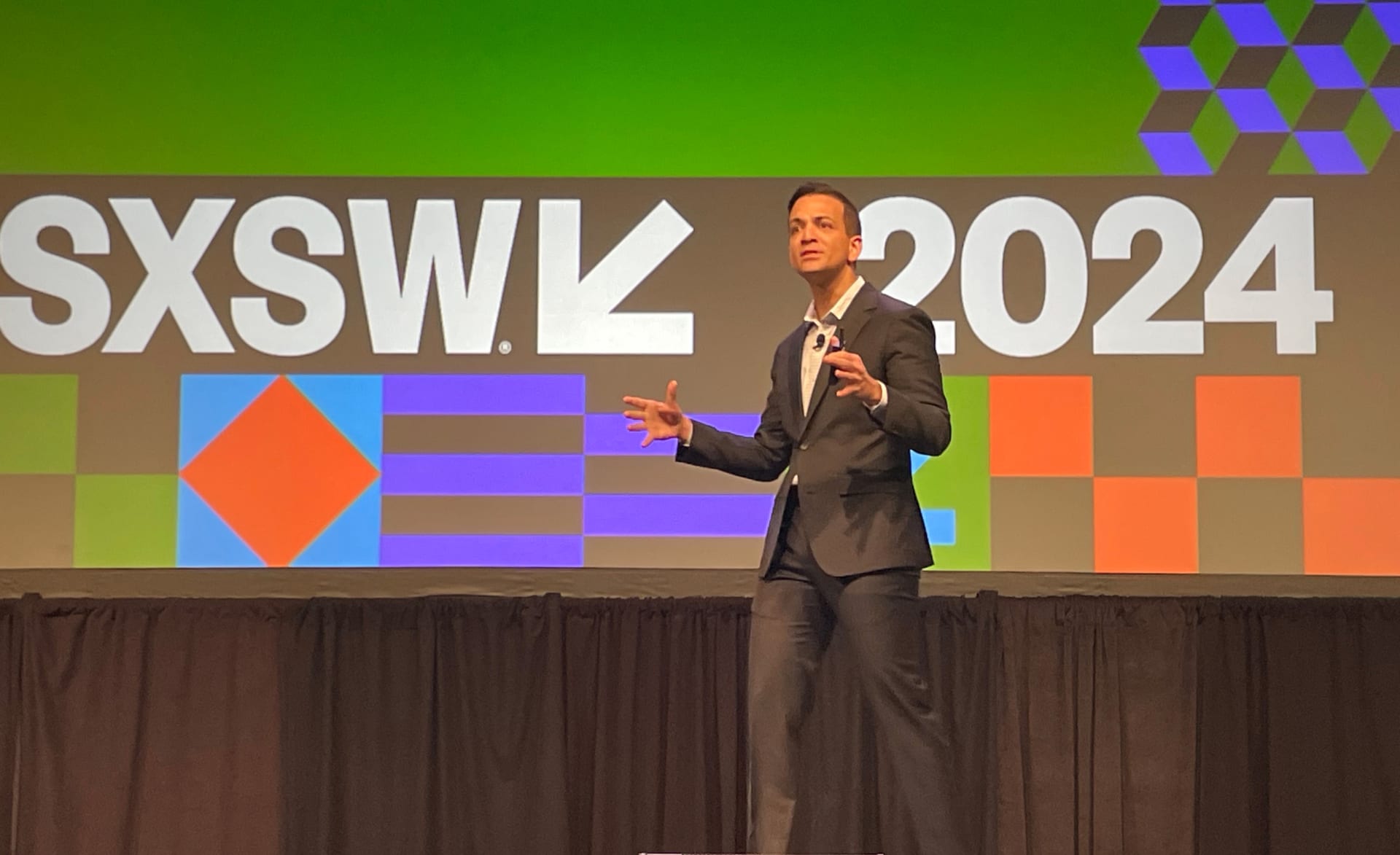Across multiple sessions at the SXSW 2024 Health & MedTech track, experts described a future in which technology unleashes a new era of hyper personalized health. People will be empowered to self-manage, thanks to digital dashboards fueled by data from an array of wearables, devices and ambient sensors. Generative AI will surface health insights that arm patients and doctors alike with a profound and actionable understanding of individual biology. Here are three trends that emerged from this year’s panels and presentations.
Technology will revolutionize health provision
Self-care revolution
Routine check-ups and diagnoses at the doctor’s office will become a thing of the past. Patients will be empowered to take control of their own everyday health, actioning insights delivered by personal health data dashboards fed by an array of devices, gadgets and ambient sensors in the home. As a result, patients will only visit their doctor when prompted, and will come armed with their own biometric data.
The power of AI to surface useful insight from this rich seam of data will deliver what Woebot Health CCO Brad Gescheider called “the first real true expression of [personalised medicine].” Patients may even be able “hack” their own health thanks to their own data, for instance by understanding how different foods or activities affects their body.
Getting the right tracking technology in patients’ hands will be key, but even the simplest of devices might soon offer useful insights or behavioural nudges. Stephan Habif, chief technology officer at Colgate-Palmolive described how an intelligent toothbrush might nudge people towards better oral hygiene by encouraging better technique.
Until now, health data has been notoriously siloed, but generative AI promises to help join the dots, according to Jag Singh, professor of medicine at Harvard. He predicts we’ll see “more change happen now, more quickly than we have in the past.”
Home diagnostics
Devolving routine care to individuals will be critical if healthcare is to be sustainable. Labor shortages are a growing problem in health, where the shortfall of workers is predicted to reach 10 million worldwide by 2030. In his session, pulmonologist and chief medical officer for Amazon Pharmacy Vin Gupta questioned how we will care for more people with less?
Gupta pointed to new tools making diagnostics in the home ambient and frictionless, including contactless biometric screening via video selfie or smart mirror and toilet seats that gather physiological data on patients. In some cases, humble gadgets like the smartphone could even be more accurate than medical tools like blood pressure cuffs, which can sometimes offer unreliable readings if they fit poorly, said Gupta.
Less intrusive but highly accurate methods of screening are also emerging, he said, like T-cell serum tests to detect cancer. These will encourage more people to get tested, enabling earlier treatment and potentially saving lives.
Pre-emptive medicine
“We are at the beginning of the end of the way we conventionally practice medicine,” said Jag Singh. Instead of tackling sickness, the focus will shift to pre-emptive health interventions that prevent disease.
“The future of care” says Singh, “will be sensor-aided, will be virtual, will be powered by artificial intelligence and predictive analytics that will be integrated into our clinical workflows and translate into better clinical outcomes.”
The digital dashboards that enable patients to self-manage health will also allow for continuous remote patient surveillance by physicians. Predictive tools will identify which patients are likely to develop disease in the future and prompt doctors to intervene early and offer pre-emptive care.
AI could even help deliver better patient-physician interactions by freeing up doctors’ time. Along with eliminating the need for routine check-ups and diagnoses, AI can also help with mundane, time-consuming admin. By auto-generating case histories and appointment notes or automating prescription authorisations or refills, doctors will be able to spend more time engaging with their patients says Singh.
Generative AI will also act as the doctor’s thought partner. According to Vin Gupta, 20% of delayed diagnoses or misdiagnoses are due to clinical diagnostic errors but AI platforms like Glass AI now “replicate how a doctor thinks,” assessing symptoms and offering differential diagnoses and care plans.
Please provide your contact information to continue.
Related Content

SXSW 2024: Key Trends

